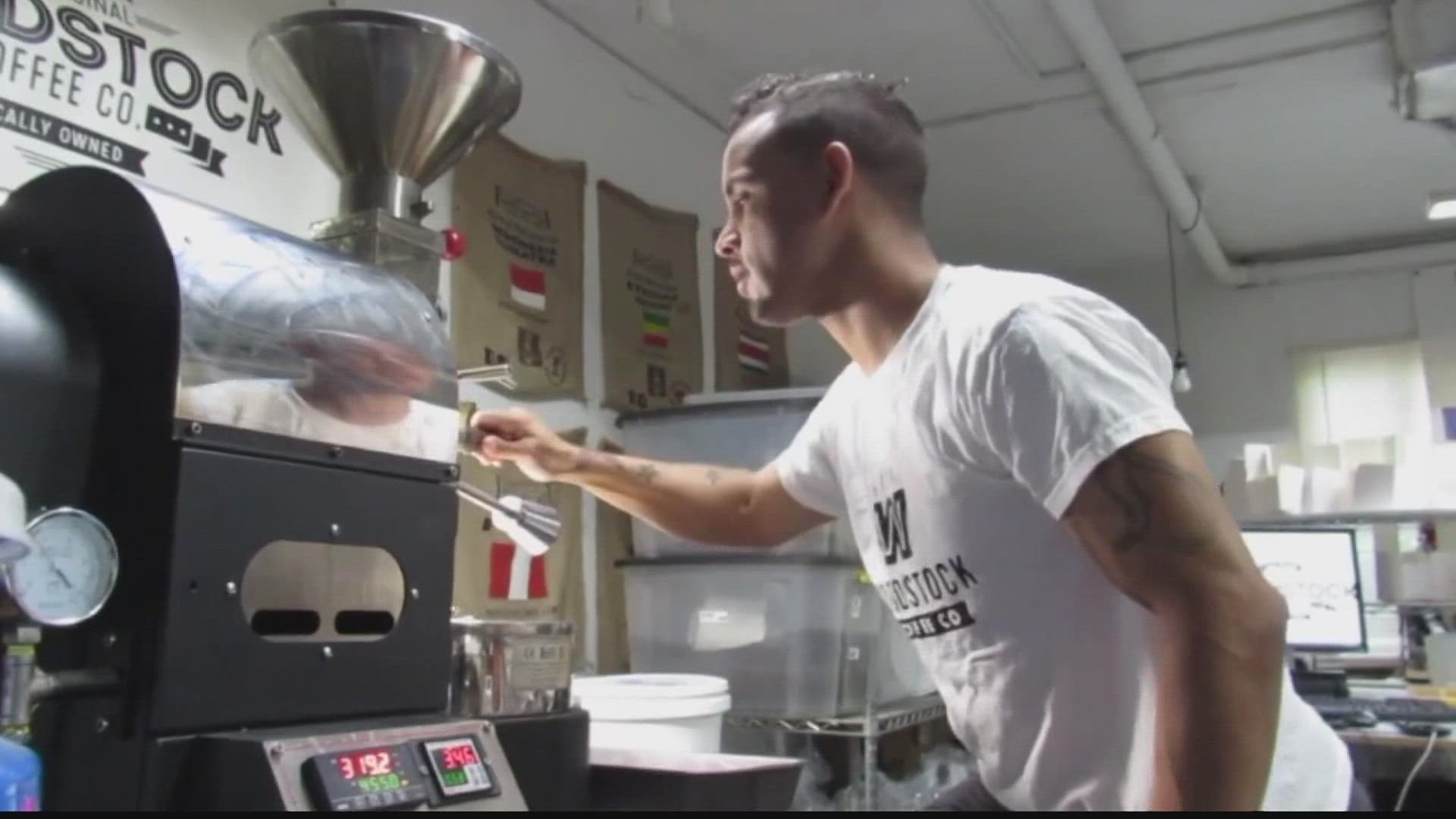WOODSTOCK, Ga. — Georgia's unemployment rate is at an all-time low of 2.9-percent. But it's still tough for some people to get jobs, especially those with a criminal background.
Parris Landon, Jr. was arrested when he was 17 and spent five years of his life behind bars. Twenty years later, the Seattle native now owns gyms, performs as a musician and owns a coffee company. The father of four hopes to offer job opportunities to others with criminal backgrounds with Second Chance Coffee.
“I was given a second chance, and I promised myself when I first got out, if I ever got into a position to help somebody – especially someone of color – I would do that," Landon said. "Just because you got in trouble doesn’t mean you’re not a person.”
Landon's coffee company is running with the help of his family and operates out of about four stores in Woodstock. He's currently raising money to expand the business.
Landon said there were several barriers to getting jobs for former inmates, and he believes the support system is not adequate at the state and federal levels. As of February 2020, Georgia had 4.3 million people with a criminal record, per the Georgia Justice Project. About half of them had been arrested at least once, and more than 600,000 Georgians have felony convictions.
The Georgia Justice Project said a criminal record could reduce the chances of a callback for a job by half, but if one is Black and has a criminal record, the penalty is likely twice as severe as white applicants. Wayne Mack, assistant director of staff development at the Georgia Department of Labor, said getting a job was the number one deterrent of going back to prison.
“A job gives you value, it gets you well connected with society all over again," Mack said. "It’s a stepping stone upward.”
Mack said stereotypes and preconceived notions, a lack of housing, transportation and skills can bar ex-offenders from landing a job after serving their sentence.
“They want to know your heartbeat, and the heartbeat is: 'Did you learn from what you did? Did you learn from your crime? Did you have remorse? Are you going to be honest?'” Mack said.
Mack pointed to The Offender Parolee Probationer State Training Employment Program, or TOPPSTEP, which helps match former inmates with job opportunities to ease their transition back to regular life. He said employers also have more incentive now than ever to hire people with criminal backgrounds. The federal bonding program can limit liability, and employers can write off thousands of dollars just by hiring ex-inmates through the work opportunity tax credit.
Landon said called these programs solid steps forward for those who have served time and are now looking to serve their communities.
"The whole time I was in trouble, that wasn’t my destiny," Landon said. "I want to make sure other people of color, that’s not their destiny. Getting out, that’s when the real challenge started. Regardless of where you’re starting, it doesn’t have to be the end."
Landon added there are people out there who care.
"There are people who care about you, people that want to see you successful, people that are willing to help you, people who have been through the same thing as you. But you’ve got to put forth that effort and you can’t be scared to be pushed down. You’ve got to be able to get back up," he said.

